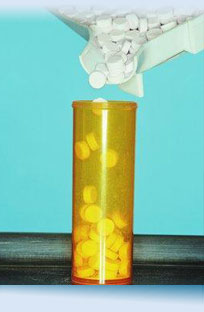Clave de Autorización: 0009300201A22345
Welcome To Taj Pharmaceuticals Ltd API
About Worldwide | FAQs | Careers | | Media Center | | Taj Pharmaceuticals World | | TAJ Group


|
Fluvoxamine Maleate Manufacturers in India Suppliers Fluvoxamine Maleate Exporters Distributors Fluvoxamine Maleate api active pharmaceuticals ingredients Fluvoxamine Maleate manufacturers Side Effects bulk drugs raw material Fluvoxamine Maleate companies Side Effects Importers Fluvoxamine Maleate Fluvoxamine Maleate Exporters Fluvoxamine Maleate exporters FDA Fluvoxamine Maleate DMF Symptoms Generic Taj Pharmaceuticals Ltd. |
active pharmaceutical ingredients suppliers pharmaceutical Fluvoxamine Maleate manufacturing pharmaceutical drugs pharmaceutical intermediates Fluvoxamine Maleate pharmaceutical chemicals pharmaceutical raw materials Fluvoxamine Maleate active pharmaceutical ingredients Fluvoxamine Maleate committee active pharmaceutical ingredients manufacturer Fluvoxamine Maleate Active Pharmaceutical Ingredients manufacturer Fluvoxamine Maleate exporter drug ingredients pharmaceuticals |
Pharmaceuticals API Manufacturer Fluvoxamine Maleate, Fluvoxamine Maleate manufacturer India, Fluvoxamine Maleate product, Fluvoxamine Maleate products, Api preparation, Certificate of Analysis API manufacturer product, Fluvoxamine Maleate anti ulcer product, Certificate of Origin COA Fluvoxamine Maleate COS Fluvoxamine Maleate, pharmaceutical generic, pharmaceutical drug, medical, Fluvoxamine Maleate pharma healthcare, pharma patents, contract MSDS manufacturing Trader Fluvoxamine Maleate pharma, generic pharma, HCL pharma MSDS pharmaceutical products, pharmaceutical formulations, generic import API, Fluvoxamine Maleate expectorant Pharmaceutical GMP Method of analysis formulations manufacturer, Fluvoxamine Maleate DMF drug master file pharmaceutical Anti Cancer active ingredient exporter from India, pharma Fluvoxamine Maleate ingredients, api, HIV Fluvoxamine Maleate, tablets, capsules, syrup & protein Fluvoxamine Maleate powder, GMP of Plant api nutraceuticals, gynec products, ortho ingredients in India, oncology products, Fluvoxamine Maleate gastroenterology products, buy, sell orthopaedic product, who gmp, cGMP, US FDA, Fluvoxamine Maleate WHO, UKMHRA Approval |
|







